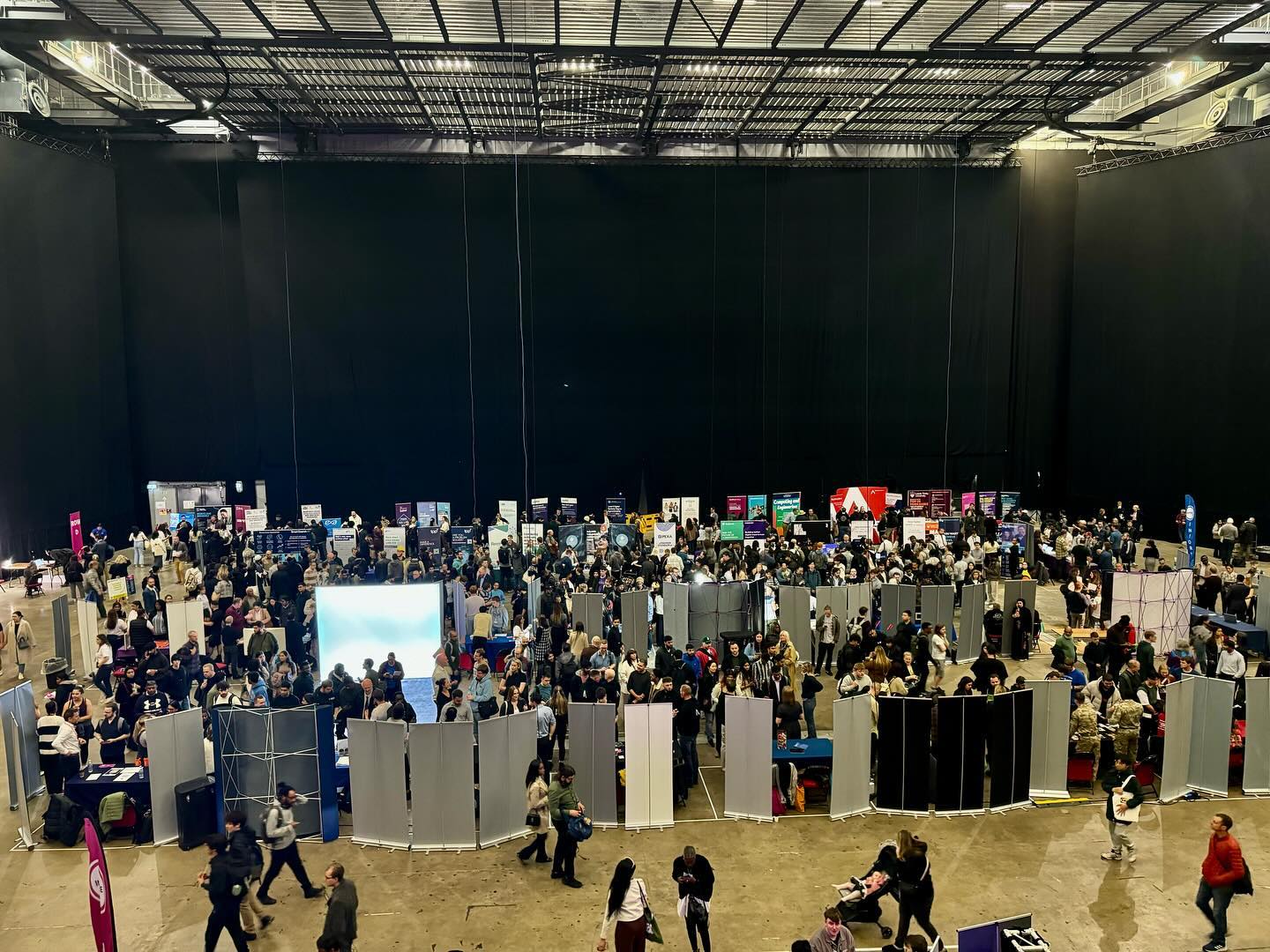Leeds Competes with Manchester and London as a Leading Tech Start-Up Hub in the UK
In recent weeks, the Leeds Digital Festival has highlighted the city’s growing tech scene, drawing approximately 15,000 participants to more than 200 events. Most of these events were free, featuring attendance from large tech firms, government officials, banks, law firms, and academic institutions. Established in 2016, the festival aimed to showcase the success of tech start-ups in Leeds.
According to a government report released in March, Leeds is recognized as the “second city” for tech start-ups in the UK, trailing only London. However, cities like Edinburgh and Manchester also compete for this title. Leeds has seen initial tech success mainly from fintech companies due to its extensive financial services sector, as well as from health tech firms linked to NHS Digital, which is headquartered in the city, noted Stuart Clarke, the director and founder of the Leeds Digital Festival.
The landscape is now diversifying, with a growing number of start-ups emerging across various technology sectors. This growth is supported by nine universities in the broader area, which produce a high number of graduates in STEM (Science, Technology, Engineering, and Mathematics) fields, outpacing all regions outside of London.
“The talent pool here is significant and continually expanding,” Clarke remarked. He added that in the past, graduates from Leeds universities often moved to London to tap into its established start-up ecosystem. However, many are now choosing to stay in Leeds due to lower living costs and its proximity to London.
One entrepreneur example is Revannth Murugesan, who moved from India to pursue a master’s degree at Leeds University Business School. After completing his studies in 2018, he joined the university’s incubator program to develop his idea for a 3D-printing start-up focused on creating parts for electric vehicles. This model aims to minimize emissions by producing components on-site rather than shipping them globally. The incubator program provided him with essential resources, including office space and funding, facilitating his application for a work visa.
In response to the disruptions caused by the pandemic in 2020, Murugesan pivoted his business plan toward enabling companies to perform local 3D printing. This led to the establishment of Antonym in 2021, which offers “factories in a box.” Antonym designs complete 3D printing systems housed within shipping containers, allowing companies to create spare parts on-site according to their designs.
Targeting sectors like aerospace, energy, and healthcare, Antonym aims to provide capabilities for on-site production of surgical instruments and components for semiconductor manufacturers.
According to Murugesan, Antonym is generating revenue and is currently seeking to raise £1.25 million in external funding to expand operations in Arizona, strategically located between Phoenix and Tucson, where many aerospace firms are present.

Despite this expansion, Murugesan intends to maintain Antonym’s headquarters in Leeds, asserting, “While the US has superior access to capital, Leeds and Sheffield offer unmatched access to talent.” Currently, Antonym employs five full-time engineers and has brought on an intern.
Reflecting on his journey, Murugesan stated, “Being in a smaller pond is advantageous. In London, I would have been just another start-up among 10,000 others, but here, the community is closer-knit, and we offer mutual support.”
Similarly, Nick New, co-founder and CEO of Optalysys, is also leveraging Leeds’ advantages. His company, which focuses on developing advanced photonic semiconductor chips, was founded in 2013 and has attracted substantial funding. New emphasizes the importance of local universities in preparing graduates with the specialized skill set necessary for their innovative projects.
“We’re like a Silicon Valley startup situated in Yorkshire,” he remarked, noting the lack of precedents in the UK for raising significant funds for chip development. Optalysys secured £21 million in its most recent funding round, with contributions from Lingotto and Northern Gritstone, a fund closely tied to the universities of Leeds, Manchester, and Sheffield. The company has grown its workforce from 15 to nearly 50 and is now exploring further fundraising to reach £50 million.
Optalysys is working on a silicon photonic chip aimed at enhancing ‘fully homomorphic encryption’ (FHE), a secure encryption method resilient even against quantum computer threats. This innovative technology can streamline the encryption process, enabling secure data sharing at high speeds required by modern consumers.
With over 102,000 individuals employed within the tech sector in the Leeds city area, the overall sentiment remains optimistic among both established tech firms and emerging start-ups, especially regarding potential government initiatives to foster advancements in AI.




Post Comment